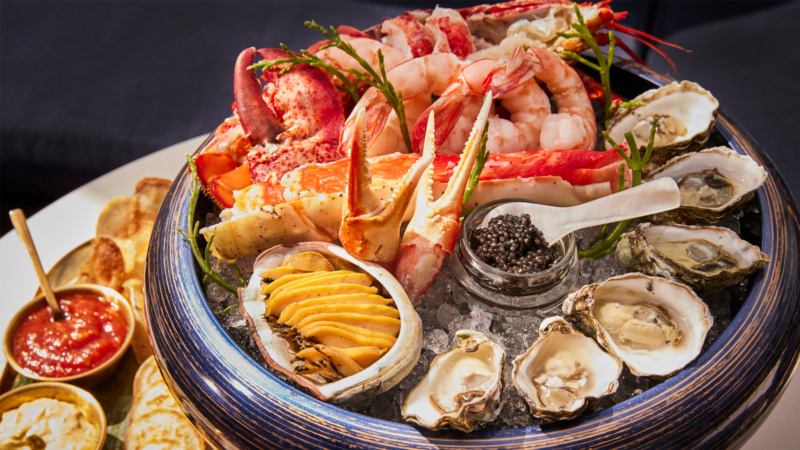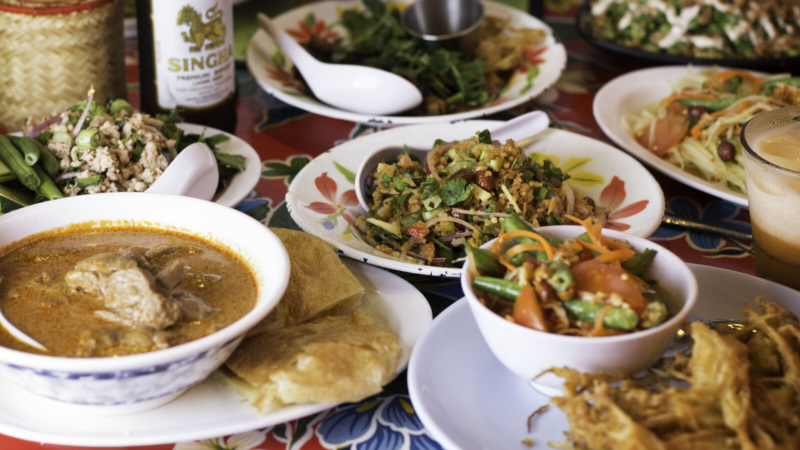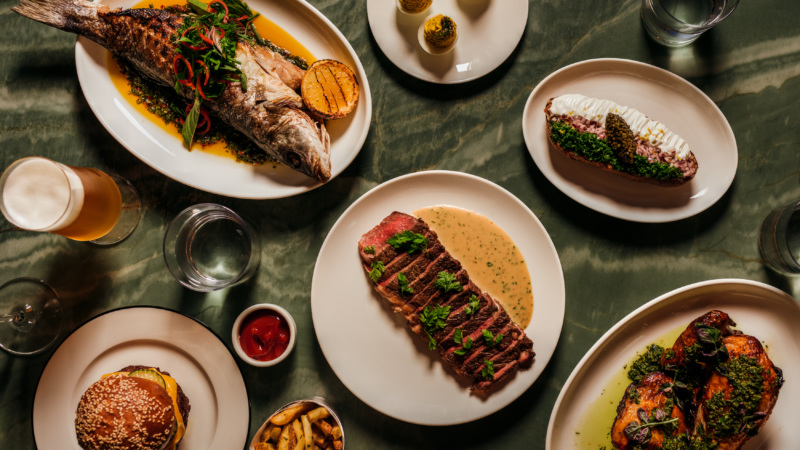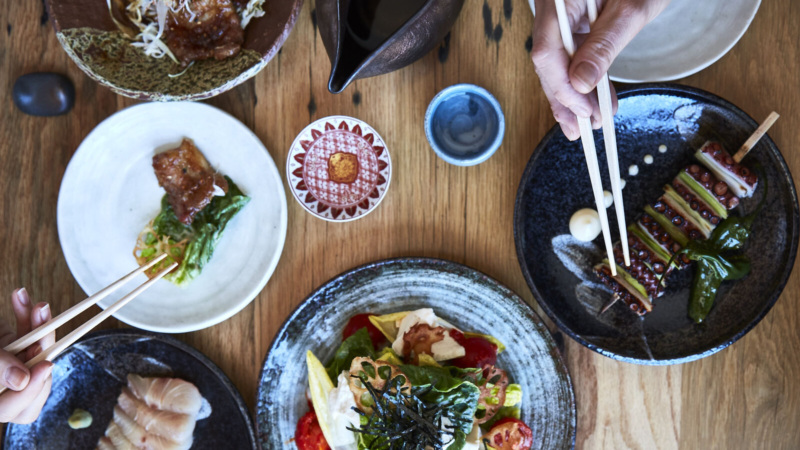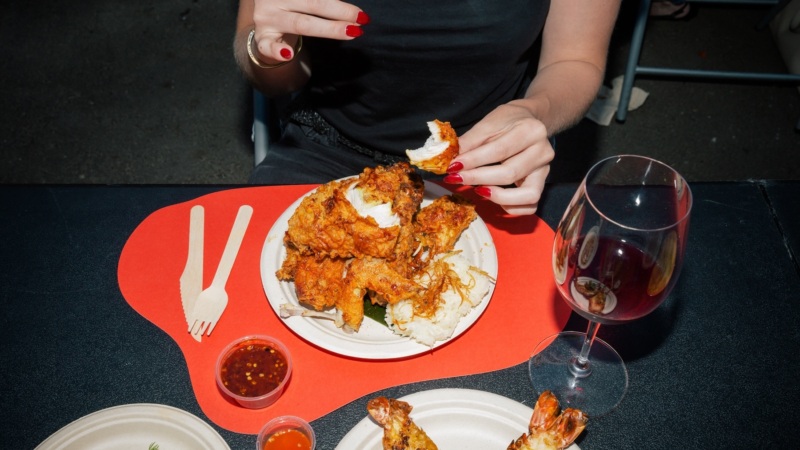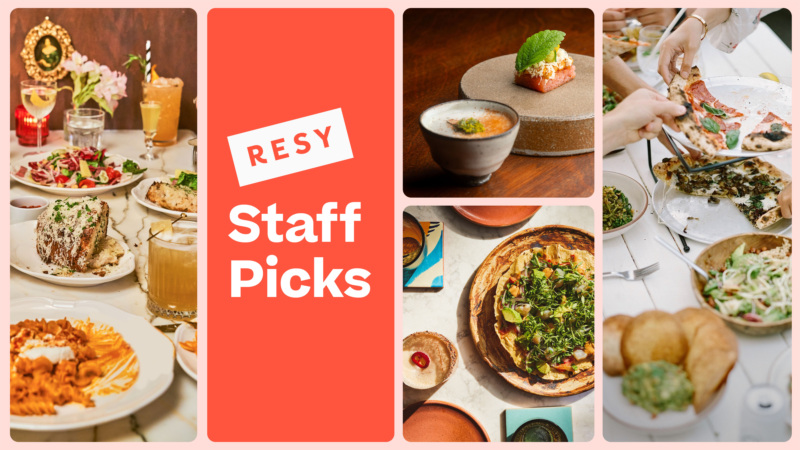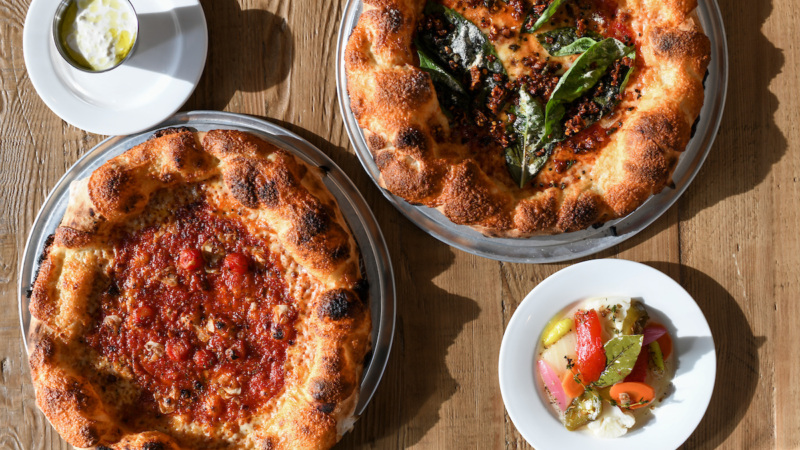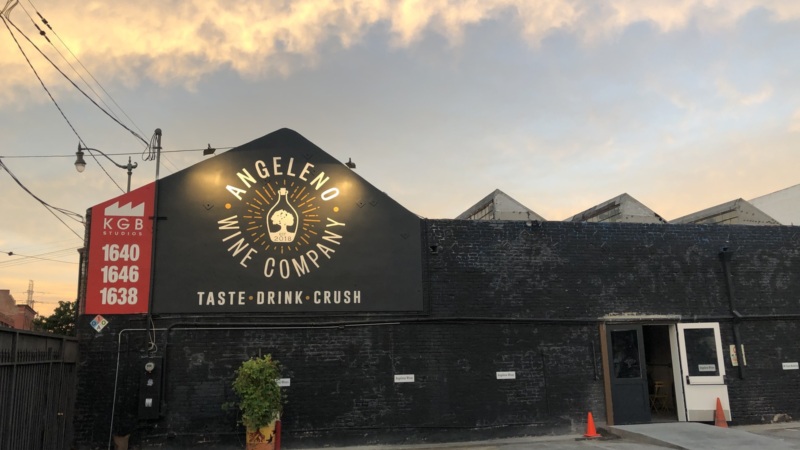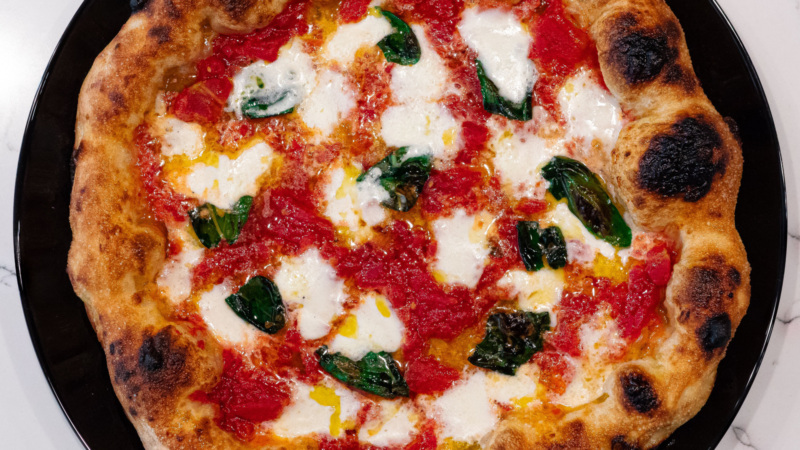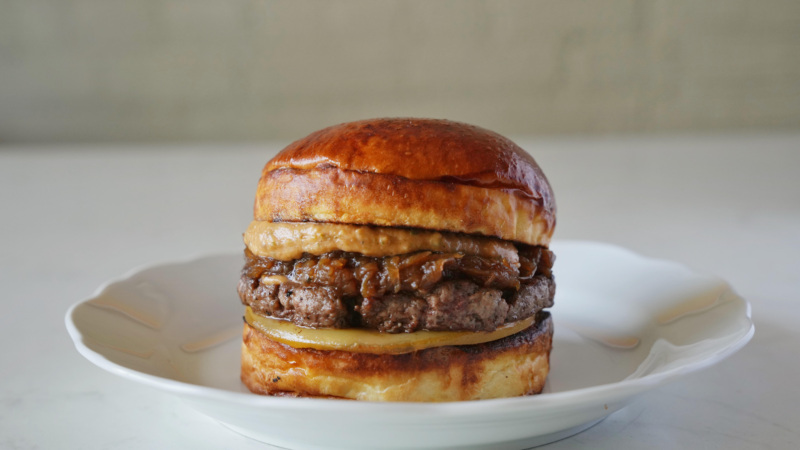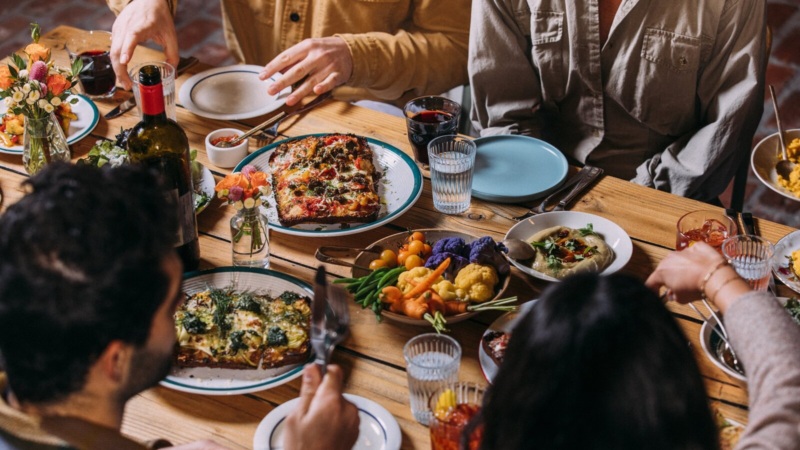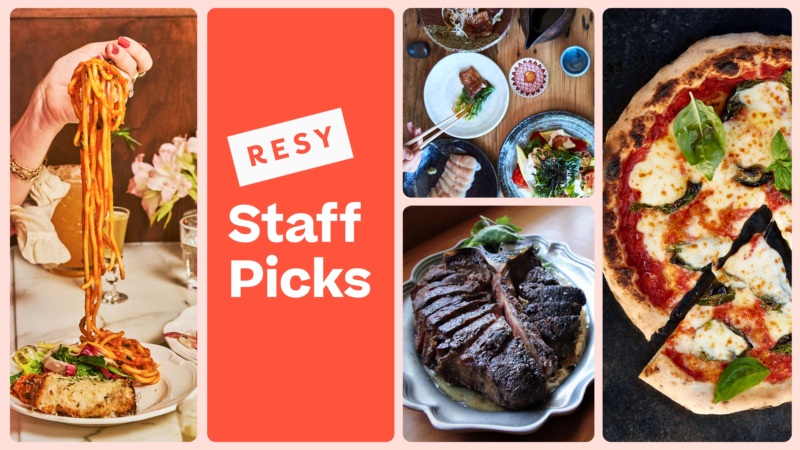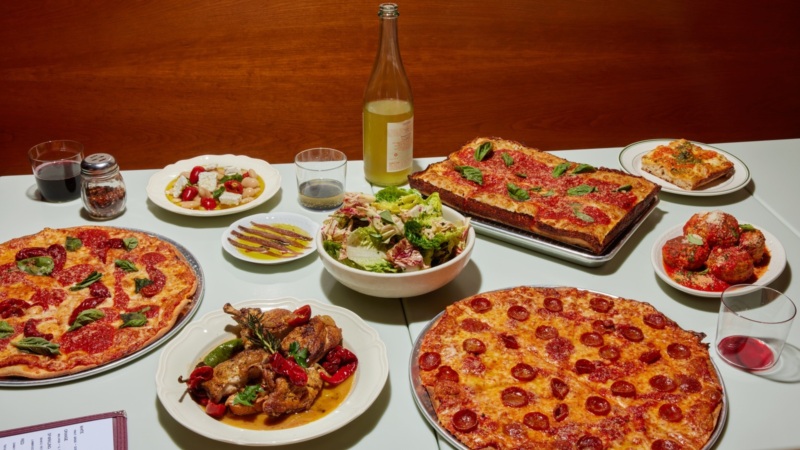
Feeding Each Other: Restaurant Workers and Food Insecurity
Over the two decades that I have worked within the restaurant and hospitality industry, I have noticed and experienced a certain truth about the workers: We consider ourselves to be a tribe. Once you are in, you are forever a part of the family. It takes a team to pull off a successful service. Because of this, we often feel a desire to take care of one another.
When COVID shutdowns began across the country in March, I was living in Los Angeles. I hadn’t really planned on being there long-term, but I was going on two months. I had been traveling after closing one chapter of my culinary journey and was open to all of the possibilities California had to offer.
Upon arrival in L.A., I was encouraged by a good friend to see if I could find work there. Within 24 hours of sending out my resume, I had two line cooking positions at Kismet and Kismet Rotisserie. I had met one of the chef-owners, Sarah Hymanson, when we were both working as sous chefs in New York, eight years ago. Fortunately, her L.A. restaurants had shifts to fill when I was inquiring, and they took me on full time.
I was thankful for the connections and bonds I had formed within our community all across the country. It made the experience of being in a new city more comforting, knowing that every day I was going to work with lovely people making and serving delicious food. The tribe came through!
During the week, I would look forward to a big green salad, with cucumbers, sprouts, carrots, broccoli, roasted chicken, and the delicious tahini for my shift meal. I would usually buy a side of the tahini to take home with the leftover pitas at the end of the night. For employees, they were half-priced.
Before brunch service, our sous chef would prepare the staff a meal, often made from extra ingredients found in the walk-in cooler. One of my favorites was breakfast congee, with toppings like fried garlic, housemade sausage, cabbage, and spicy scrambled eggs. At the end of the day, I would go home with a pint of shakshuka and the breakfast egg tarts, because they were only served during the day and since they had been heated for service, could not be reused.
Food security comes with working in the restaurant industry. I’ve always worked in restaurants where I was given a free or discounted meals. Usually after a shift, a free beer or cocktail is also given as a reward for a day’s work. And it is during these times, when we are sharing a meal or after service drinks, that we bond even more as a team and restaurant family.
***
When Los Angeles restaurants were forced to close, I lost all of my shifts. I had previously relied heavily on my meals at work as my main meals of my day. And I was not making a lot of money as a line cook, $14-$16 an hour — plus tips — between the two places. Also, I didn’t have a lot of groceries at home.
So when the shutdown happened, I compiled a list of essentials that I felt would get me through until my next payday. And went grocery shopping. As I began my journey through the store, I faced an unfortunate reality: Every item on my list was gone from the shelves. No eggs. No rice. No beans. I went for my go-to comfort food, boxed mac-n-cheese — gone. No pasta. I figured I could just make some pasta at home but — no flour. There was almost no fish, so I opted for the last bag of frozen tilapia. As I wandered around the store, anxiety grew over me as I tried to find items that could build multiple meals and also stretch my dollar. An image of the tiny vegetable plots in our backyard that my friend and roommate had started months earlier gave me some sense of security, “If all else,” I thought to myself, “at least we have kale.”
That week, as I ate kale toast for breakfast and then kale and white bean soup for lunch, my social media feeds filled with pictures of folks baking bread and pastries, leisurely testing new recipes at home. I began to be filled with contempt. It was frustrating that I had spent my life cooking and making food for others, and here I found myself, during a time of crisis having an issue accessing food. Meanwhile, some folks on the internet seemed to have no issue at all.
I was invited into a “COVID BAKE OFF” group by a childhood friend. I’m sure they thought I would find it fun, as a professional, but I could only muster one post: “I can’t find flour.”
***
Nearly three weeks after my last day of work, I had finally come to a place of zen with eating that much kale when a friend forwarded me a post from the Instagram account of the restaurant Sqirl, which had just partnered with the LEE Initiative to become a relief kitchen offering free meals and essential goods for out-of-work restaurant workers. I couldn’t believe it! And it was free! I spent the next day eagerly awaiting it.
Every afternoon at 4:30, I would join my fellow restaurant workers, as we waited in a line — wearing masks and keeping six feet apart — outside of the restaurant to receive a large brown paper bag that included a warm meal along with other essential, hard-to-find items like toilet paper. That first day, I sat in my car and opened my bag. There was a fresh green salad with housemade vinaigrette, a warm roll, potato wedges with housemade ketchup, and a hearty tomato-based chicken soup. I couldn’t wait to get home and eat. It was the first salad greens I had enjoyed in weeks.
The contents of the bags varied day to day. Sometimes there would be a pound of coffee and a half gallon of oat milk. Or perhaps fruit, energy bars, or laundry pods. It turned into something I looked forward to each day. As I would wait in line, and folks ahead would show their pay stubs upon arrival, that service industry connection, the same one that keeps us showing up to support each other’s establishments, would shine through.
“Oh I love that place!” would exclaim the person handing out provisions, or “I can’t believe I never made it there!” Hearing that always made me a little sad, because we didn’t know when — or if — there would be a next time for some spots.
But in the meantime, that community kitchen provided the security we needed during a time of crisis. And for me, I enjoyed that every time I stood in the line, I would watch my restaurant family grow.
Unfortunately, over the past few months, the situation for restaurant workers has grown more dire, as many restaurants have had to close, either temporarily or permanently. And with the end to the federal unemployment benefits, the need for relief kitchens is continuing to grow. Food insecurity has become a permanent fixture of many of our lives.
Nyanyika Banda is currently staying at home, writing and planning for when we can all sit at the table together again. Follow her on Instagram at @nyks1981. Follow @Resy, too.
Discover More


